Scenes From The Bangladesh Society Elections In Kensington
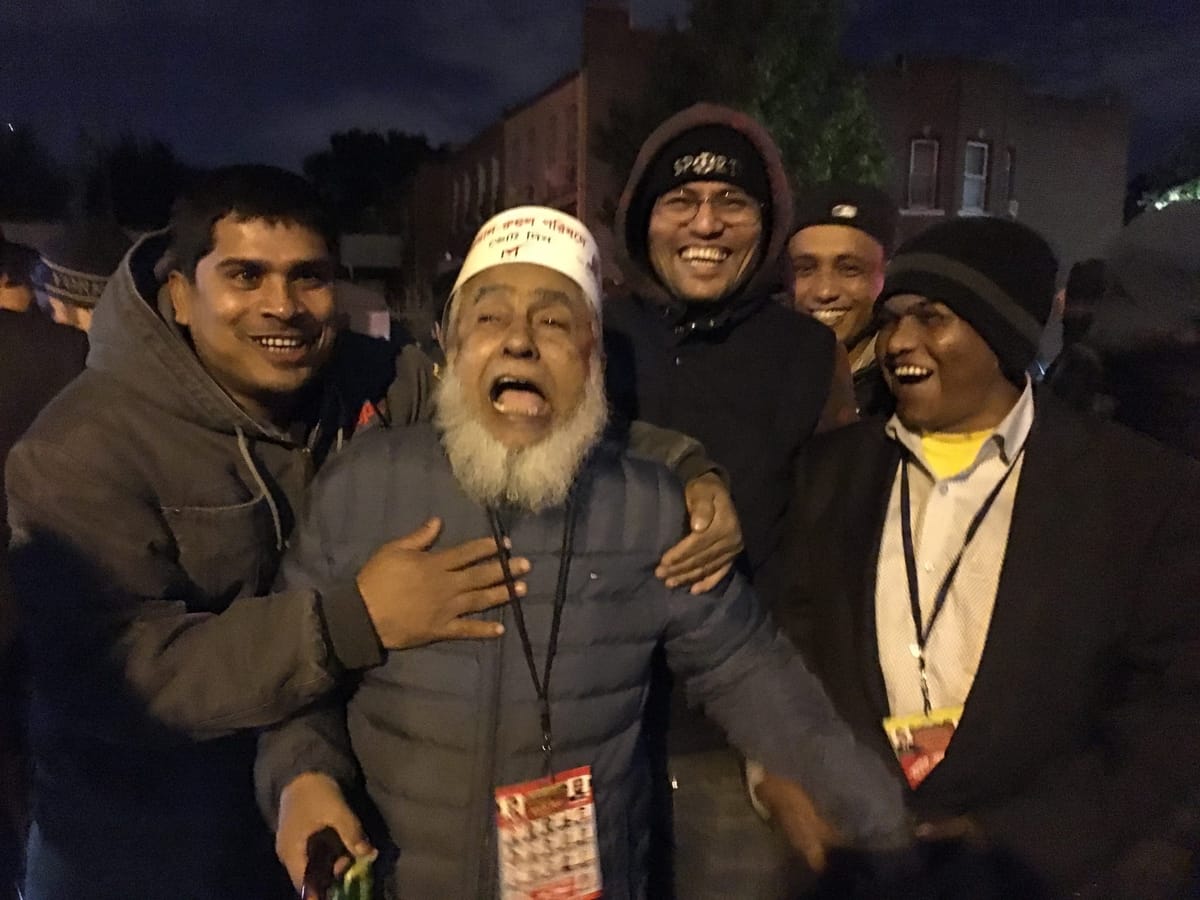
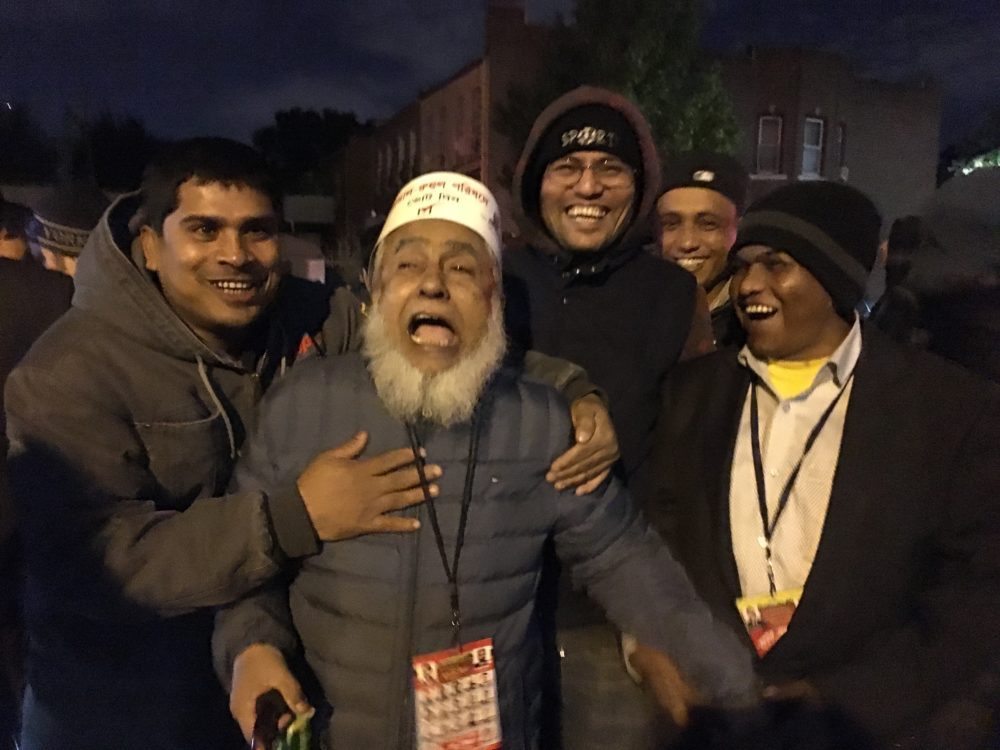
The Bangladesh Society, a massive non-profit supporting Bangladeshis in New York, held its biennial election this past Sunday at PS 179. Electricity sparked through the crowd as hundreds gathered on Avenue C to vote, talk, await the results and erupt in spontaneous celebration.
Over the past few weeks, residents may have noticed Bangla-only candidate posters overtaking trees and street signs on Church Avenue. We took this opportunity to get to know our neighbors and find out why the Society is important in Kensington.
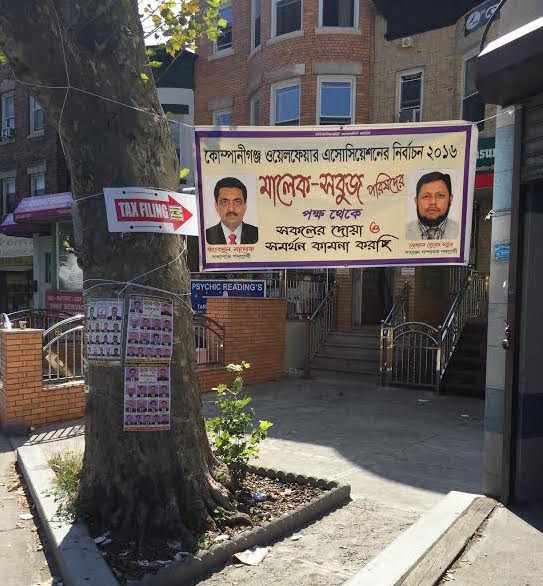
The Bangladesh Society, founded in 1974, holds several public events, educational seminars, and holiday street festivals throughout NYC. The society also speaks for community needs like housing and halal food, and offers burial plots for members, according to PR and Publicity Secretary Mafijul I. Bhuiyan. The non-profit is entirely funded by membership dues, which run $10 per person for the entire year.
“[The Bangladesh Society] is like communication between the community and the mainstream,” said Bhuiyan.
During the election, members can vote for nineteen seats on the all-volunteer Executive Committee. In 2016, almost 19,000 members voted in 5 polling locations throughout the city, including Avenue C and East 3rd Street, said Bhuiyan.
“[The Executive Board] is like a mini-parliament,” Shaidul Niloy told DPC on election night, with officials representing different districts in Bangladesh. Niloy is the son of newly elected Vice President, Abdul Khaleque Khair.
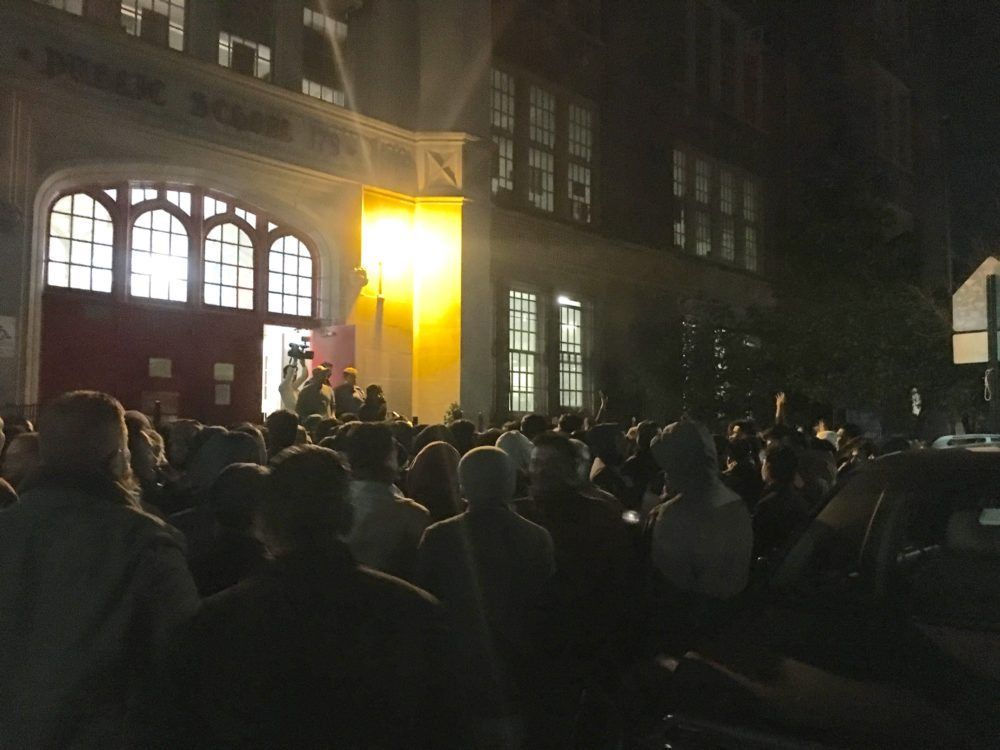
A lot of money is also raised through the elections. Each candidate has to pay to hold their nomination and then collect votes from dues-paying members. The candidate for president pays the highest rate at $4,500, while each descending position pays $1000–$500 less to run.
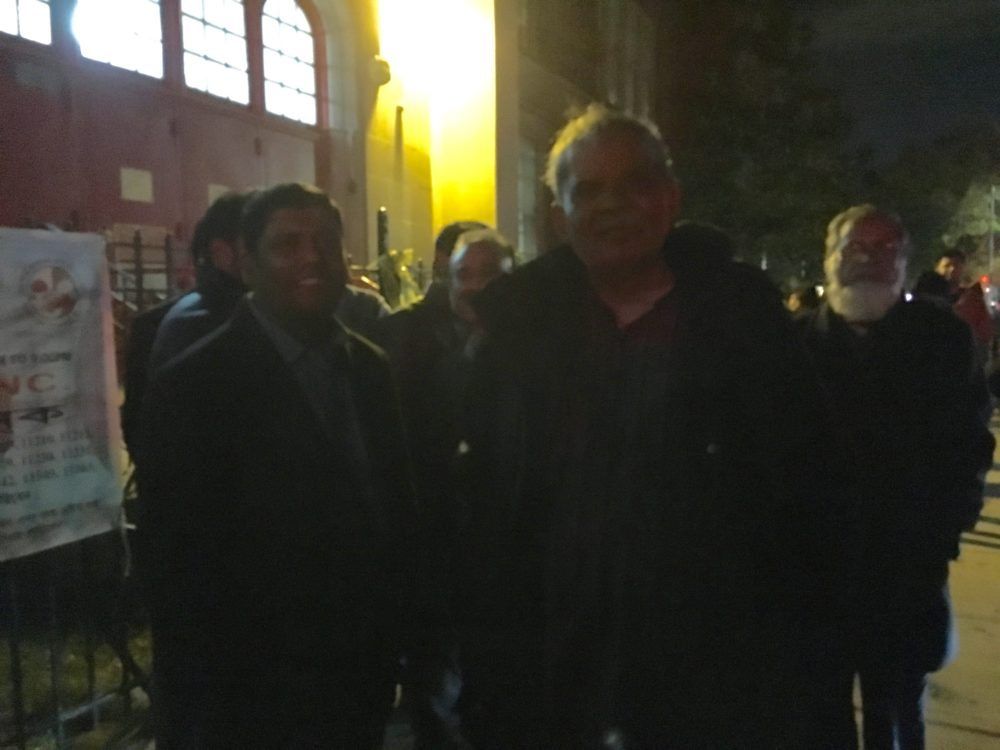
One of the Society’s stated goals is to teach Bengali language and culture to the younger generation born in America. “There’s a generational gap, kids aren’t as interested,” said Hasiba Haq, a Kensington-based activist who works with women.
“Parents don’t have much else to offer their kids here, but to see them thrive as Americans and hold on to the roots that are so important to them.”
In addition, activists like Haq are pushing for more places where women can feel included in a male-dominated society.
The executive board represents more men than women; out of thirty-eight candidates, only three women ran in 2016. Last year, only two women sat on the board. When we asked Bhuiyan why there were so few women, he said that women are welcome to run.
“It’s hard to break into those places as a young woman, especially when it comes to positions of power,” said Haq, speaking generally about community engagement.
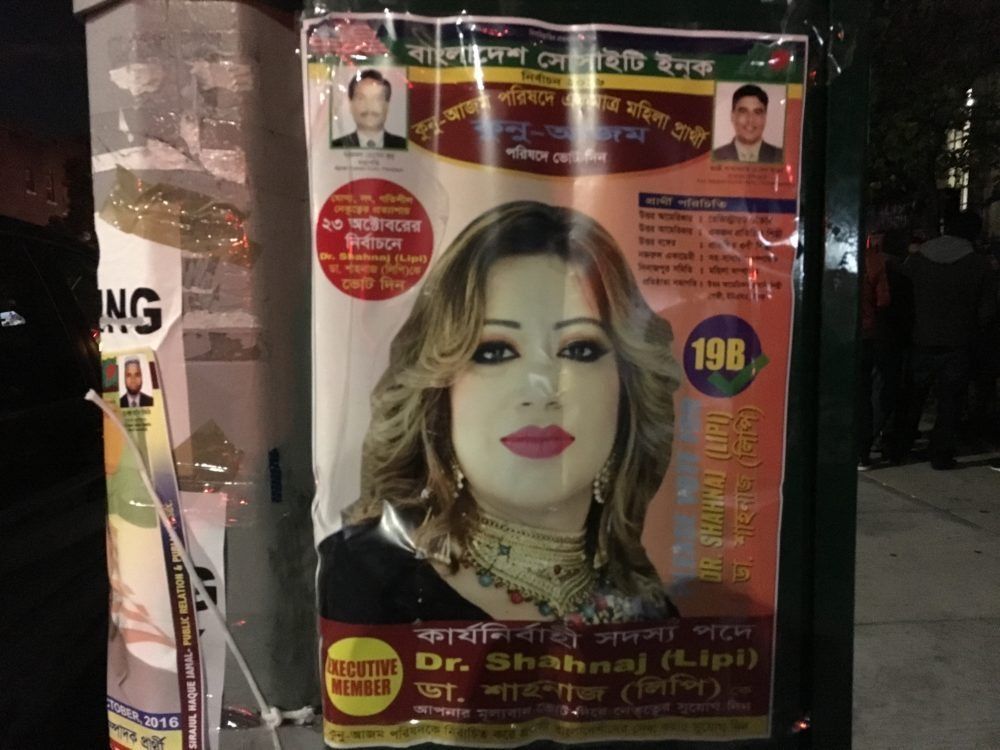
While Haq expressed respect for the Society’s preservation culture, she also questioned whether there’s a better way to harness the engagement and power that they build.
“Thousands of people come out for this non-profit board election and people show up to community meetings,” she said. “But what’s frustrating is that it is an election year in the US and that isn’t getting as much attention in the community as it should.
“It’s easier for people to be engaged in politics in Bangladesh, instead of thinking about what it means to be American,” Haq said.
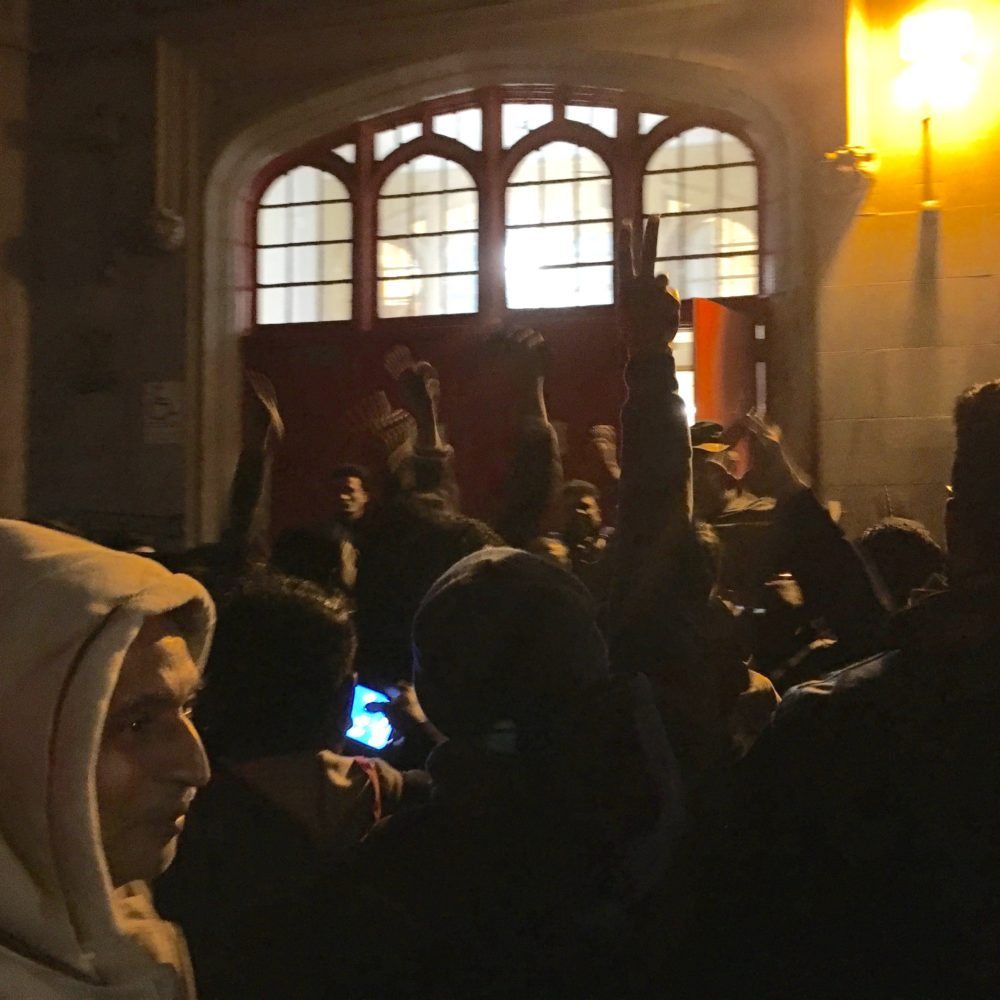
Kensington’s population is growing in terms of numbers, but also in terms of poverty, and mental health issues, said Haq. The community needs resources like legal and health assistance, after-school programs, and computer literacy classes. “In the future, I hope they use that people power to give back to where we’re living right now.”



